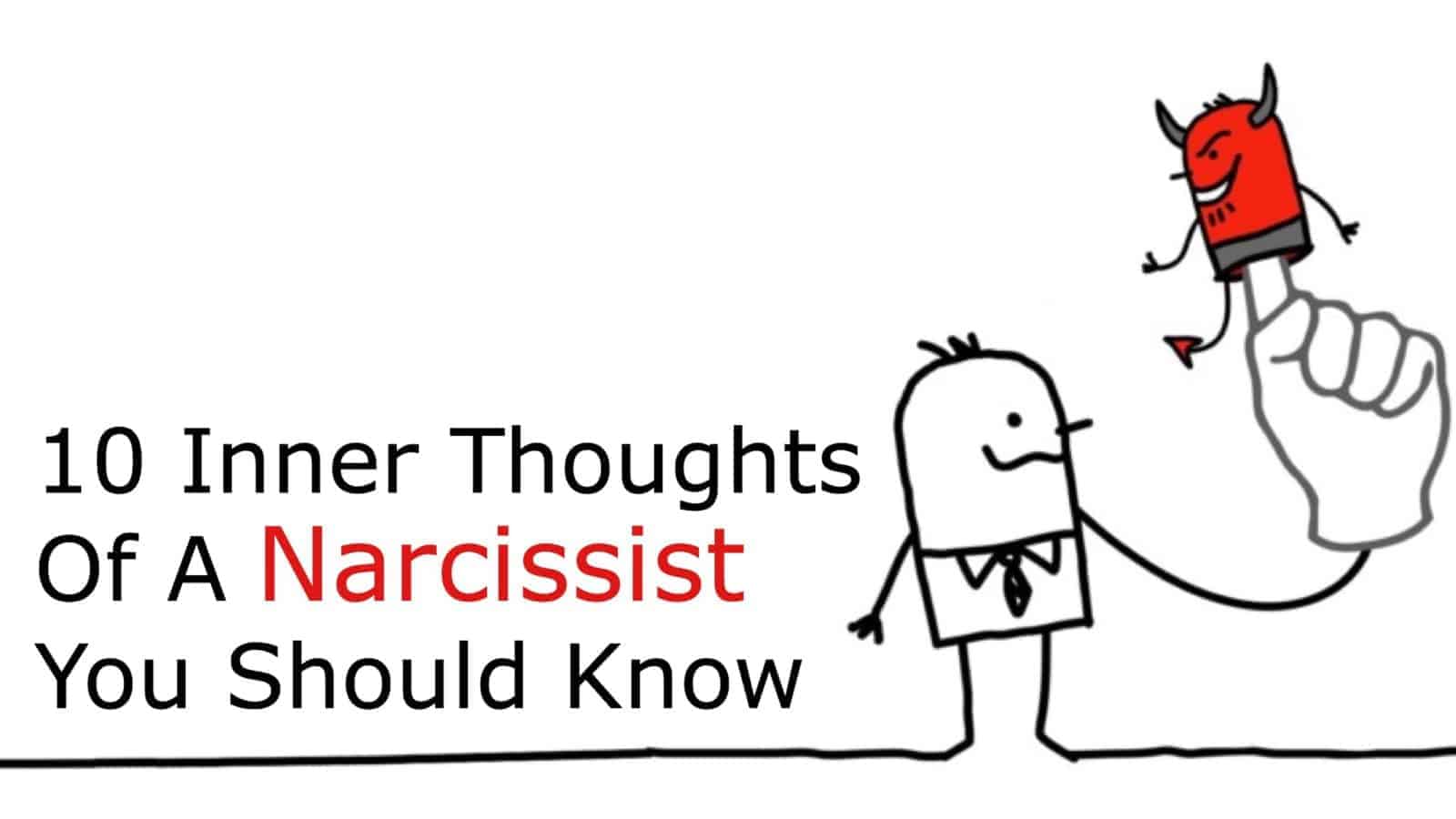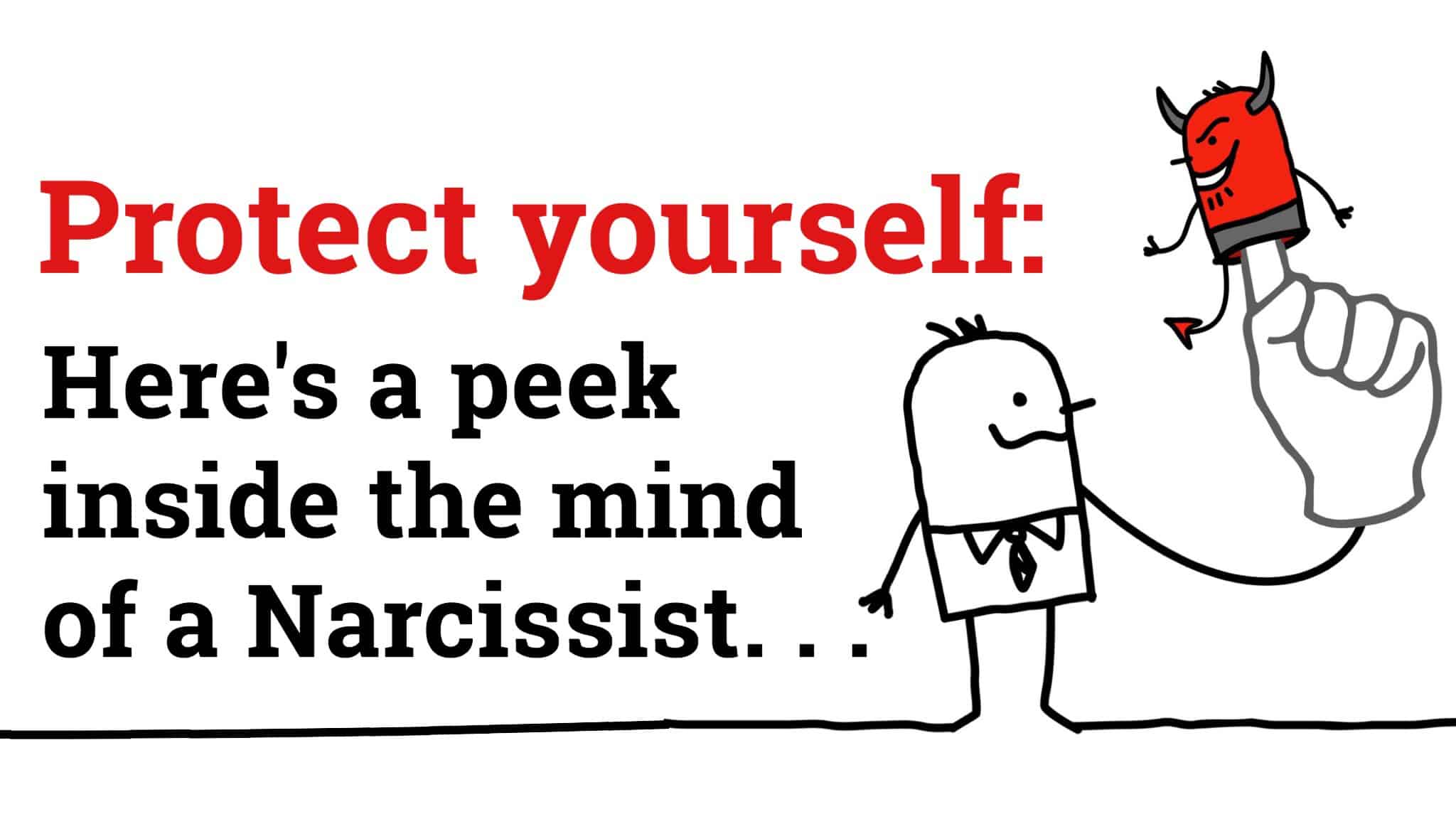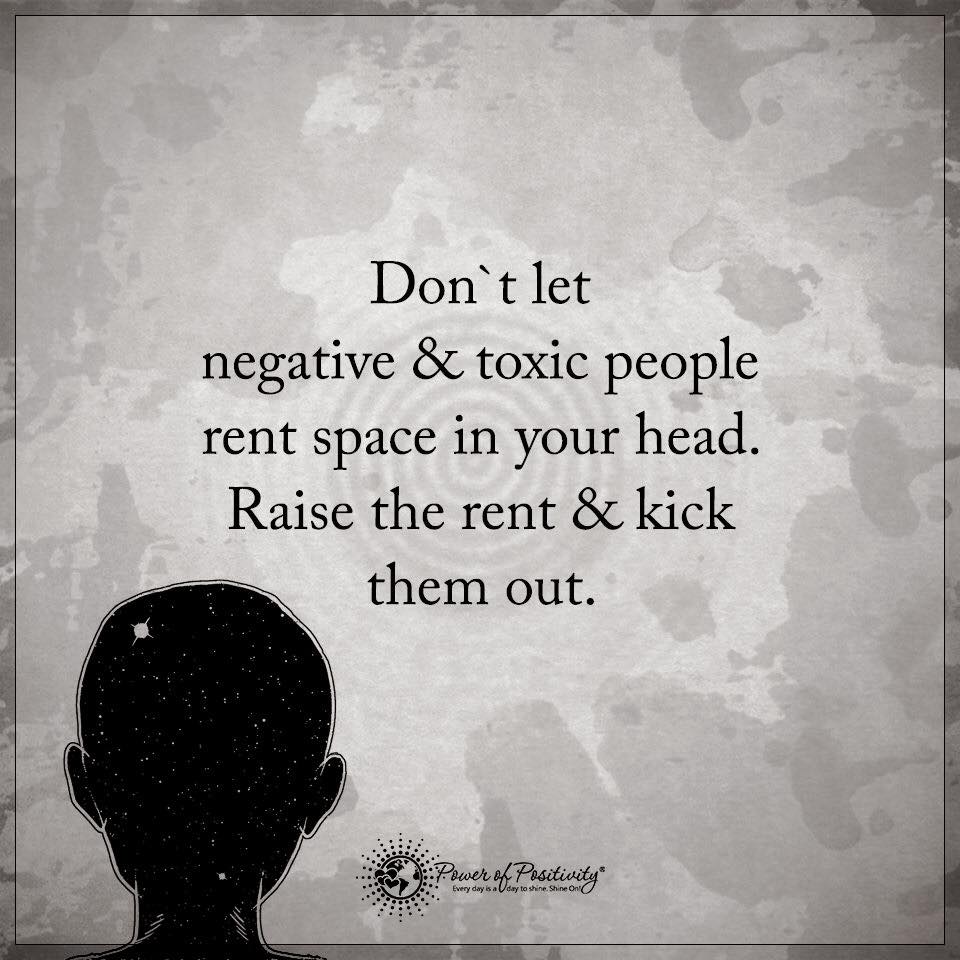Chances are that at one point or another, you’ve met someone who’s a narcissist. After all, narcissism is not all that uncommon – at just over 6 percent of the U.S. population.
Actual narcissism is a real personality disorder called Narcissistic Personality Disorder, or NPD. NPD is characterized by a need for constant admiration, feeling overly important, and a near absence of empathy of others.
This article focuses on the inner-workings of a narcissist’s mind…what makes them “tick.” With that said, let’s get started.
Here are 10 projections from the mind of a narcissist:
1. “I require constant attention…why am I not getting it?”
Narcissists are incapable of managing feelings about their self-worth; as such, they depend on others to provide a sense of worthiness. Psychologists have two terms for this abnormal dependency: “emotional supply: and “narcissistic supply.” In actuality, narcissists often feel empty and defective, carry these feelings with them, and are always looking for someone to “resupply” their insatiable need for approval.
2. “I need to take care of and focus on only myself.”
This one is just plain ole’ self-centeredness taken to an extreme. Narcissists care about themselves, always put their needs first, and cannot fathom the terms “sacrifice” or “compromise.” While self-centered people can, and often do, change their perspective on what’s important (especially at they mature), narcissists will likely maintain an excessively self-centered mindset for the rest of their lives.
3. “Time to move on from this relationship…”
Question: how can someone commit to another when they only care about themselves? Answer: they can’t. Narcissists have a voracious appetite for “pick me up’s,” and this applies to relationships too. Dating a narcissist always seems to follow a predetermined route: they meet someone who caters to their constant emotional needs; initial feelings of excitement subside, and they’ll walk away or find someone else. The notion that they’ve just badly hurt someone never surfaces in their mind.
4. “I’m right, you’re wrong, and there’s nothing you can do about it.”
In the real world, most people can and will acknowledge when they’ve been wrong; it’s tough but manageable. Narcissists are incapable of admitting when they’re wrong, even when presented with fact after fact. Why? Because of their misplaced sense of superiority; a “false self,” utterly incapable of admitting when someone’s correct, and when they’re not.
5. “Why am I in a constant battle with myself? It’s nothing…”
“There’s a long-standing belief…that narcissists actually feel great about themselves…Savvier researchers recognized that the emperor had no clothes…They hooked the narcissists up to a lie detector (fake) then asked them how they felt about themselves. Suddenly, their high self-esteem vanished,” explains Dr. Craig Malkin.
Narcissism is an enigmatic condition, and this fact applies when evaluating the condition and one’s predispositions, such as confidence. Most experts believe that narcissists have developed a coping mechanism – a rewiring of the brain – that permits them to exhibit confidence despite deep-rooted fears of failure of weakness.
6. “Why does everyone feel so bad for him/her?”
As mentioned above, narcissists do not contemplate any pain inflicted on others. Similarly, they do not consider other’s opinions, thoughts, or feelings that conflict with their own.
One individual in a former relationship with a narcissist described her experience: “My partner would just hurt my feelings when things were going well. When I would question him about it, he would make up excuses and tell me I’m wrong for feeling the way I did…”
7. “I deserve this…why don’t I have it?”
It’s quite clear by now that narcissists don’t possess a mature mindset. When it comes to wanting something, a narcissist will often behave like a toddler who never quite grasped that they’re not at the center of the world.
Another quick real-world example:
Dan tried to convince his wife that he shouldn’t have to warm up dinner himself when he gets home late, so she shouldn’t go out at night with the kids.
Stay classy, Dan.
8. “My life is boring… time to stir something up…”
The phrase “emotional roller coaster” is perhaps the best way to describe how others feel when dealing with a narcissist. The reason that others bear the brunt of a narcissist’s antics is that they (surprise, surprise!) lack emotional intelligence. In a way, the stirred-up feelings of someone on the receiving end of a narcissist’s tomfoolery reflects the “soaring and crashing” of the narcissist’s inner emotional world.
9. “Why didn’t he/she call me back?”
This may actually be the best example of a narcissist’s obscure thought process to dating and relationships. As mentioned, they’ll quickly dismiss someone who they’ve been in a relationship with and not give the person a second thought.
Here’s what one therapist said about narcissists and dating/relationships: “…they do get rejected quite a lot. When this happens…they feel depressed, agitated and worthless. They forget about all the women they themselves have run from and only remember the ones where they didn’t get a second date.”
10. “Who are you to shame me?”
The narcissistic have a great brew of emotions stirring underneath their seemingly assured appearance. They’ve developed a delicate personality; so familiar to feelings of inadequacy and insecurity that they don’t feel disappointed, embarrassed, or shamed by someone else’s criticism.
Instead of acting like an adult, they’ll become distant and avoidant. Sometimes, they’ll become critical themselves and display outward hostility.
“Narcissism falls along the axis of what psychologists call personality disorders, one of a group that includes antisocial, dependent histrionic, avoidant and borderline personalities. But by most measures, narcissism is one of the worst, if only because the narcissists themselves are so clueless.” – Jeffrey Kluger, author of The Narcissist Next Door



















